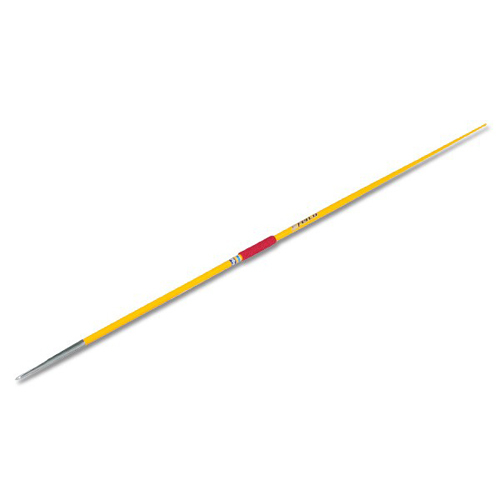Public Meeting to be Held on Proposed Closure of Part of Sacramento River

by California Department of Fish & Wildlife
1-26-2016
Website
The California Department of Fish and Wildlife (CDFW) is holding a public meeting to solicit comments on a proposed emergency fishing closure of 5.5 miles of the Sacramento River above the Highway 44 Bridge in Redding to the Keswick Dam. CDFW has determined this closure is necessary to protect endangered winter-run Chinook salmon. The anticipated dates of closure are April 1 through July 31.
The meeting will be held Friday, Jan. 29, from 4-5:30 p.m. at the Redding Public Library, 1100 Parkview Ave., Redding (96001).
"Because of the drought, we had to close the river last year to save as many of these fish as possible," said Lt. Richard Wharton, CDFW Law Enforcement supervisor in Redding. "The great news is we had widespread cooperation from Shasta County anglers, who clearly demonstrated they care about this dwindling species."
CDFW is proposing a complete fishing closure in this critical holding and spawning area to ensure added protection for the federal and state endangered winter-run Chinook, which face high risk of extinction. Given the gravity of the current situation, it is imperative that each and every adult fish be given maximum protection. Current regulations do not allow fishing for Chinook, but incidental catch by anglers who are targeting trout could occur.
An additional measure taken was an agreement with the city of Redding to reduce the amount of artificial light from the Sundial Bridge during the critical stages of salmon migration. The bright lights were causing the fish to stop their journey at the bridge; by dimming the lights, city officials removed the deterrent while still sufficiently illuminating the bridge for tourists.
"We appreciate the city stepping up to help conservation efforts by lowering the lights on one of the city's most popular attractions," said Neil Manji, CDFW Northern Region Manager. "In our studies we found that once the light levels came down, the fish immediately swam under the bridge on their way to the sea."
This reach is the principal winter-run Chinook spawning area during these extraordinary drought conditions. An estimated 98 percent of 2014 and 2015 in-river spawning occurred in the 5.5 mile stretch under consideration for closure. This section represents only 10 percent of the waters currently open to fishing upstream of the Red Bluff Diversion Dam.
In 2014 and 2015, approximately 95 percent of eggs and young winter-run Chinook were lost due to elevated river temperatures. Given current drought conditions, it is likely the 2016-year eggs and young salmon will again be subject to extremely trying conditions.
CDFW is tasked by the Governor to work with the California Fish and Game Commission to determine whether fishing restrictions in certain areas are necessary and prudent as drought conditions persist. The proposed closure is also in accordance with the state and federal Endangered Species Acts.
The meeting will be held Friday, Jan. 29, from 4-5:30 p.m. at the Redding Public Library, 1100 Parkview Ave., Redding (96001).
"Because of the drought, we had to close the river last year to save as many of these fish as possible," said Lt. Richard Wharton, CDFW Law Enforcement supervisor in Redding. "The great news is we had widespread cooperation from Shasta County anglers, who clearly demonstrated they care about this dwindling species."
CDFW is proposing a complete fishing closure in this critical holding and spawning area to ensure added protection for the federal and state endangered winter-run Chinook, which face high risk of extinction. Given the gravity of the current situation, it is imperative that each and every adult fish be given maximum protection. Current regulations do not allow fishing for Chinook, but incidental catch by anglers who are targeting trout could occur.
An additional measure taken was an agreement with the city of Redding to reduce the amount of artificial light from the Sundial Bridge during the critical stages of salmon migration. The bright lights were causing the fish to stop their journey at the bridge; by dimming the lights, city officials removed the deterrent while still sufficiently illuminating the bridge for tourists.
"We appreciate the city stepping up to help conservation efforts by lowering the lights on one of the city's most popular attractions," said Neil Manji, CDFW Northern Region Manager. "In our studies we found that once the light levels came down, the fish immediately swam under the bridge on their way to the sea."
This reach is the principal winter-run Chinook spawning area during these extraordinary drought conditions. An estimated 98 percent of 2014 and 2015 in-river spawning occurred in the 5.5 mile stretch under consideration for closure. This section represents only 10 percent of the waters currently open to fishing upstream of the Red Bluff Diversion Dam.
In 2014 and 2015, approximately 95 percent of eggs and young winter-run Chinook were lost due to elevated river temperatures. Given current drought conditions, it is likely the 2016-year eggs and young salmon will again be subject to extremely trying conditions.
CDFW is tasked by the Governor to work with the California Fish and Game Commission to determine whether fishing restrictions in certain areas are necessary and prudent as drought conditions persist. The proposed closure is also in accordance with the state and federal Endangered Species Acts.
More Reports
California Department of Fish & Wildlife Reports
for Monday, January 25th, 2016
• So Cal Fish Plants for week of January 24th
• San Diego Fish Plants for the week of January 24, 2016
• Trout Plants for week of Jan. 24
• Inyo County Fish Planting
California Department of Fish & Wildlife Reports
for Thursday, January 21st, 2016
• Required to Abide by Boat Limits When Fishing on a Party Boat?
• Trading services for smoked fish and fish parts?
• Big game hunting with javelins?
